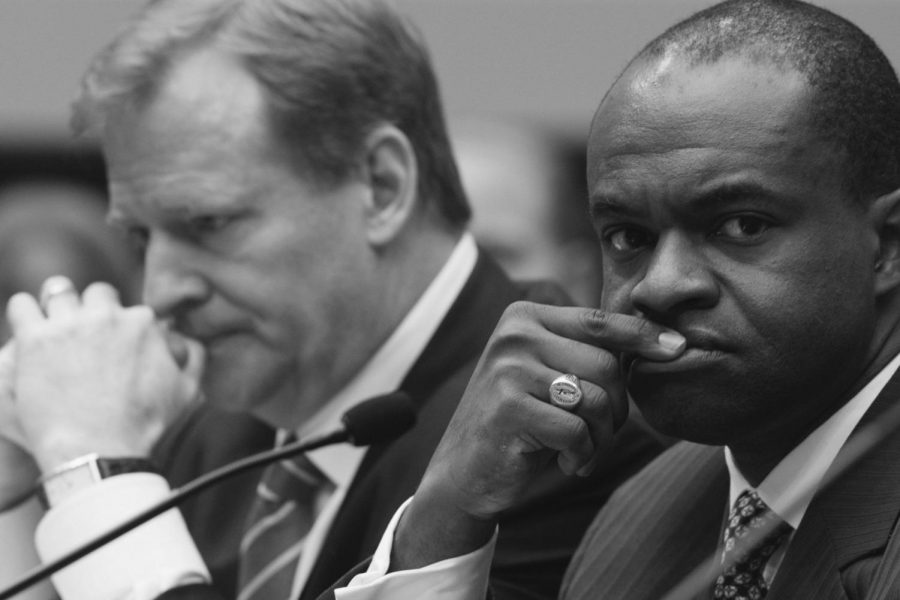NFL season in jeopardy because of labor dispute
May 30, 2011
History often tends to repeat itself. In this case, the NFL is bearing witness to a reoccurrence of the NFL season of 1987.
That season was cut short one game when the members of the National Football League Players Association went on strike. Week three of that year featured no games while Week’s 4-6 were played by replacement players hired by the owners of each respective team.
The strike lasted a grand total of 24 days. The NFLPA failed to set up a fund to compensate players for lost wages, so 89 veterans crossed the picket lines during the strike, including Dallas Cowboys defensive end Randy White and San Francisco 49ers quarterback Joe Montana.
These players went back to work after the team owners threatened to cut player annuities. A lack of union support combined with poor fan reaction and replacement games ended the strike.
The players filed an antitrust lawsuit against the NFL and the team owners in 1989 that challenged the legality of free agency.
The lawsuit claimed that free agency was an “unlawful restraint of trade.” This lawsuit and others forced the NFL to create a salary cap with a base salary floor and a minimum total pay.
Fast forward to 2011 and the events of 1987 have returned. The NFL and the NFLPA extended a collective bargaining agreement (CBA) that came into existence after a 1993 antitrust lawsuit five times, with the latest extension set to run through the 2011 season.
The NFL team owners voted 30-2 to extend the agreement, but in 2008 the owners opted out of the CBA. This caused the 2010 season to be played without a salary cap.
The NFL and the NFLPA entered into negotiations to extend the CBA but the talks failed to produce a compromise. The players association threatened to begin a strike if an agreement was not reached.
No deal had been struck as of early March of this year, so on the 11th of last month the NFLPA decertified. This means that a player strike of the 2011 season is very possible.
Former (because of decertification) NFLPA Executive Director DeMaurice Smith spoke with Cincinnati Bengals wide receiver Chad Ochocinco at the 2010 NFL Draft. Ochocinco asked Smith what the odds of a lockout were on a scale of one to 10.
“On a scale of one to 10, it’s a 14,” said Smith.
The NFL team owners in turn locked out their players, meaning that no contact could be made between the players and owners.
This also means that no team is allowed to sign a player, including anyone who is picked up in the 2011 NFL Draft in April.
Another major point of contention between the parties is the possibility of extending the NFL season to 18 games.
This would be accomplished by shortening the preseason to two games and making the other two count.
“First of all, the league has never presented a formal proposal for 18 games,” said Smith in an interview with Sports Illustrated.
“But more importantly, it’s something that our players don’t want. Eighteen games are not in the best interest of our players’ safety, so we’re not doing it.”
Fans of the NFL will have to wait and see what happens with the two organizations if they wish to see a 2011 season. Ten NFL players, including New England Patriots quarterback Tom Brady and Indianapolis Colts quarterback Peyton Manning have filed an antitrust lawsuit against the NFL.
There appears to be no end of the dispute in sight, so fans may have to do without in 2011.


